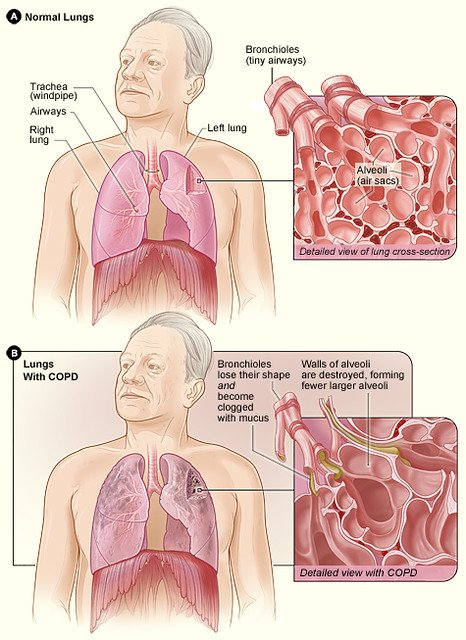Now Reading: The Importance of Sanitation in Survival Medicine
-
01
The Importance of Sanitation in Survival Medicine

The Importance of Sanitation in Survival Medicine
Amidst the unpredictable chaos and relentless pursuit of survival, one fundamental factor often gets overlooked – that is, the importance of sanitation in the realm of survival medicine. In times of crisis, whether it’s a natural disaster or a perilous expedition, the role of proper sanitation practices can never be undermined. Picture this: you find yourself stranded in the wilderness, your survival kit intact but your surroundings inhospitable and devoid of basic amenities. It is in these dire situations that the significance of sanitation becomes paramount. Not only does it safeguard against infections and diseases, but it also plays a pivotal role in preserving mental well-being and overall resilience. As we delve into the depths of survival medicine, this article unveils the criticality of adopting and implementing proper sanitation practices to ensure a successful and healthy survival experience.
Table of Contents
- The Need for Proper Sanitation Measures
- Maintaining Hygiene in Survival Settings
- Preventing Disease Outbreaks through Sanitation Practices
- Effective Waste Disposal Techniques in Survival Medicine
- Promoting Cleanliness to Ensure Health and Well-being
- Q&A
- Closing Remarks

The Need for Proper Sanitation Measures
In today’s world, cannot be stressed enough. Ensuring cleanliness and hygiene is crucial not only for our personal well-being but for the health and well-being of our communities as well. When sanitation measures are not prioritized, it can lead to the spread of diseases, contamination of water sources, and an overall decline in the quality of life.
Proper sanitation measures encompass a wide range of practices and behaviors that promote cleanliness and prevent the transmission of harmful pathogens. Some of the key elements include:
- Regular handwashing: Proper hand hygiene is the simplest and most effective way to prevent the spread of diseases. It is essential to wash hands thoroughly with soap and water for at least 20 seconds, especially before eating or after using the restroom.
- Safe disposal of waste: Proper waste management is crucial to prevent the accumulation of waste and minimize environmental pollution. Waste should be disposed of in designated bins or facilities, ensuring it does not contaminate water sources or public areas.
- Improved water and sanitation facilities: Access to clean water and adequate sanitation facilities is a fundamental human right. Implementing proper infrastructure, such as functional toilets and clean water supply systems, is essential for preventing waterborne diseases and maintaining a healthier environment.
- Educating the community: Raising awareness about the importance of sanitation measures is key to ensuring their adoption. Educating individuals and communities about proper hygiene practices, responsible waste management, and the consequences of poor sanitation can empower them to make informed choices and contribute to a cleaner and healthier society.
By prioritizing proper sanitation measures, we can create a safer and healthier world for everyone. It is a collective responsibility that requires continuous efforts and commitment from individuals, communities, and governments alike. Let us all take the necessary steps to promote cleanliness, prevent the spread of diseases, and protect our environment.

Maintaining Hygiene in Survival Settings
When faced with survival settings, maintaining hygiene becomes even more crucial to ensure the well-being and health of individuals. Without access to modern conveniences, it may require some creative strategies to keep up with proper hygiene practices. Here are some essential tips to help you maintain hygiene in survival settings:
- Keep clean water sources: Access to clean water is essential for proper hygiene. Make sure to locate and collect sources of clean water, and purify it if needed through boiling or using water purification tablets.
- Practice regular hand hygiene: Washing your hands regularly with soap and clean water is vital to prevent the spread of germs and diseases. If clean water is scarce, use hand sanitizer or make your own by mixing isopropyl alcohol with aloe vera gel.
- Dispose of waste properly: In survival settings, waste management becomes a challenge. Always dispose of waste in designated areas or dig proper latrines away from water sources. Bury solid waste and use biodegradable soap to minimize environmental impact.
- Maintain personal cleanliness: Even without access to showers or baths, it’s important to keep yourself clean. Use wet wipes or make your own by dampening cloth with a mixture of water and antibacterial soap. Pay special attention to areas prone to sweat accumulation.
- Keep your living area clean: Regularly clean your shelter, bedding, and cooking utensils to reduce the risk of illness. Use tools like vinegar or lemon juice as natural disinfectants. Maintain good ventilation to prevent the buildup of mold or mildew.
Remember, staying hygienic in survival settings is not only beneficial for your physical health but also for the overall morale and wellbeing of everyone involved. By implementing these practices, you can minimize the risk of disease and ensure a more comfortable and sanitary environment.

Preventing Disease Outbreaks through Sanitation Practices
Sanitation practices play a crucial role in preventing disease outbreaks and safeguarding public health. By implementing effective measures, communities can significantly reduce the risk of transmission and maintain a clean and safe environment for all.
Proper waste management is paramount in preventing the spread of diseases. Ensuring that waste is appropriately disposed of, both in households and public spaces, helps minimize the breeding grounds for vectors that carry harmful germs. It is essential to emphasize the importance of segregating waste into different categories such as recyclables, organic waste, and non-recyclables. Implementing waste collection schedules and educating individuals on the proper disposal methods can go a long way in preventing disease outbreaks.
Additionally, maintaining clean water sources is critical in disease prevention. Waterborne diseases can quickly spread when sanitation practices are neglected. Regularly testing water sources for contamination and treating them accordingly is vital in preventing outbreaks. Communities should also promote the use of water filters, boiling methods, and water purification tablets to ensure the consumption of safe water.
- Encouraging frequent handwashing is a simple yet effective way to prevent disease transmission. Proper hand hygiene is crucial in minimizing the risk of infection, especially when handling food, after using toilets, or when in contact with sick individuals.
- Regular sanitation of public spaces, including hospitals, schools, and markets, is essential in preventing disease outbreaks. Disinfecting surfaces, maintaining clean restrooms, and ensuring proper waste disposal within these areas can significantly inhibit the spread of infections.
- Lastly, raising awareness and educating individuals about the importance of sanitation practices is key in disease prevention. Through community engagement programs, workshops, and informational campaigns, individuals can become more conscious of their role in maintaining proper sanitation and preventing disease outbreaks.
By prioritizing sanitation practices, communities can create a healthier environment, reduce the burden on healthcare systems, and protect the well-being of everyone.
Effective Waste Disposal Techniques in Survival Medicine
In a survival situation, proper waste disposal is crucial for maintaining hygiene and preventing the spread of diseases. Here are some effective waste disposal techniques to ensure the safety and health of individuals:
- Burying: One of the simplest and most effective methods is burying waste. Dig a hole at least 6-8 inches deep and away from any water sources. Place the waste in the hole and cover it with soil, rocks, or leaves to prevent scavengers from digging it up. Burying waste helps to contain odors and reduce the risk of contamination.
- Burning: When burying waste is not possible, burning can be an alternative method. Build a small fire pit at a safe distance from any flammable materials. Place the waste on the fire and ensure it burns completely. Remember to adhere to any local regulations and restrictions regarding open fires.
- Composting: Composting is an eco-friendly way to dispose of certain types of waste, such as food scraps, plant matter, and natural materials. Create a designated compost area away from living areas and add the waste along with organic matter like leaves, grass, and wood chips. Turn the compost regularly to aid decomposition and use the resulting nutrient-rich soil for gardening or planting.
- Sanitary bags: In situations where waste disposal facilities are scarce, using sanitary bags can be a practical solution. These bags are specially designed to contain and neutralize waste. They often come with odor-neutralizing agents and leak-proof seals, ensuring safe and hygienic waste management.
Remember, proper waste disposal is not only essential for personal well-being but also for the overall health and cleanliness of your survival environment. By implementing these effective techniques, you can minimize the risk of disease transmission and maintain a more sanitary living space.
Promoting Cleanliness to Ensure Health and Well-being
At our organization, we prioritize promoting cleanliness for the betterment of everyone’s health and overall well-being. We firmly believe that a clean environment plays a crucial role in preventing the spread of diseases and maintaining a high standard of living.
By adhering to a few simple practices, we can make a significant difference in our daily lives:
- Regular Handwashing: Washing hands frequently is vital to prevent the transmission of germs. Remember to use soap and water for at least 20 seconds, especially before and after meals, after using the restroom, or after coming into contact with potentially contaminated surfaces.
- Maintaining Personal Hygiene: In addition to handwashing, it’s essential to maintain personal hygiene by taking regular showers, brushing teeth, and wearing clean clothes. These habits not only prevent the buildup of bacteria and other harmful microorganisms but also contribute to a positive self-image.
- Clean Surroundings: Keeping our surroundings clean is equally important. Regularly disinfect frequently touched surfaces such as door handles, light switches, and shared electronic devices. Additionally, ensure proper waste disposal to prevent the breeding of pests and the spread of diseases.
By actively promoting cleanliness, we can create a healthier and safer environment for everyone. Let’s make it a habit to embrace cleanliness not as a chore but as a significant investment in our well-being.
Q&A
Why is sanitation crucial in survival medicine?
Sanitation is crucial in survival medicine because it helps prevent the spread of diseases, infections, and bacteria. By maintaining proper hygiene, individuals can reduce the risk of complications and ensure a higher chance of survival in a challenging environment.
What are some common sanitation practices in survival medicine?
Common sanitation practices in survival medicine include handwashing with clean water and soap, disinfecting medical equipment, proper waste disposal, and maintaining clean living conditions. These practices help minimize the risk of contamination and promote overall health and well-being.
How does sanitation affect wound care in survival situations?
In survival situations, sanitation is key to preventing wound infections and complications. By cleaning wounds with sterilized solutions, using clean bandages, and keeping the surrounding area free from contaminants, the chances of successful wound healing are significantly increased.
What are the risks of poor sanitation in survival medicine?
Poor sanitation in survival medicine can lead to the spread of diseases, infections, and epidemics. It can also exacerbate existing health conditions and weaken the immune system, making individuals more susceptible to illness and decreasing their chances of survival.
How can one maintain proper sanitation in a survival setting with limited resources?
In a survival setting with limited resources, improvisation is essential. Using natural disinfectants like vinegar or boiling water, practicing meticulous personal hygiene, and implementing proper waste management can help maintain sanitation with the resources available.
Can lack of sanitation compromise the effectiveness of other medical interventions?
Yes, lack of sanitation can compromise the effectiveness of other medical interventions. Even the most advanced medical treatments can be rendered useless if the environment is contaminated or lacks proper hygiene practices. Sanitation is the foundation upon which all other medical interventions rely.
What are some tips for ensuring sanitation in a survival medicine kit?
To ensure sanitation in a survival medicine kit, it is important to include items like disposable gloves, alcohol-based hand sanitizers, disinfectant wipes, and sterile wound care supplies. Regularly inspecting and replacing expired products is also crucial to maintain optimal sanitation standards.
Closing Remarks
In the realm of survival medicine, where every outcome hinges on the delicate balance between life and death, there exists a silent guardian, lurking in the shadows, often underestimated and overlooked. Its name is sanitation, and it holds the power to protect, to heal, and ultimately, to save.
As we delved into the depths of this crucial aspect of survival medicine, we unearthed a world where cleanliness transforms into a knight in shining armor, battling the invisible enemies that threaten our very existence. It is a world where scrubbing hands becomes a sacred ritual, where sterile instruments are the unsung heroes, and where cleanliness reigns supreme.
But why, you may ask, does sanitation warrant such reverence in the field of survival medicine? The answer lies within the microscopic battleground that constantly unfolds within our bodies. Bacteria, viruses, and parasites wage a relentless war, seeking to invade and conquer. In this arena, it is sanitation that provides the impenetrable fortifications, the shield that safeguards against these unseen adversaries.
In desperate times, when medical facilities are scarce or nonexistent, the importance of sanitation takes on an even greater magnitude. Imagine yourself stranded in the wilderness, far from civilization, with only your wits and survival skills to rely on. In this dire situation, every scrape, every cut, every bout of illness becomes a potential death sentence. Yet, armed with the knowledge of proper sanitation, you hold the key to defeating these horrors.
Clean water, a seemingly simple commodity, becomes a precious elixir, cleansing wounds and preventing infection. Sterile instruments, diligently sterilized by fire or boiling water, become the link between life and death. And the skillful hands, trained in the art of cleanliness, weave a tapestry of hope, ensuring that the battle against illness is fought on a level playing field.
In this world of survival medicine, the importance of sanitation is both the foundation and the pinnacle. It is the alchemy that transforms chaos into order, despair into hope, and uncertainty into possibility. For without it, a single misstep could throw us into the harrowing depths of sickness and suffering.
So let us remember, in the whispered alleys of survival medicine, that cleanliness is not just next to godliness, but rather, our most potent weapon. Embrace the power of sanitation, for it holds the key to survival in this brave new world.
As an affiliate, my content may feature links to products I personally use and recommend. By taking action, like subscribing or making a purchase, you’ll be supporting my work and fueling my taco cravings at the same time. Win-win, right?
Want to read more? Check out our Affiliate Disclosure page.





